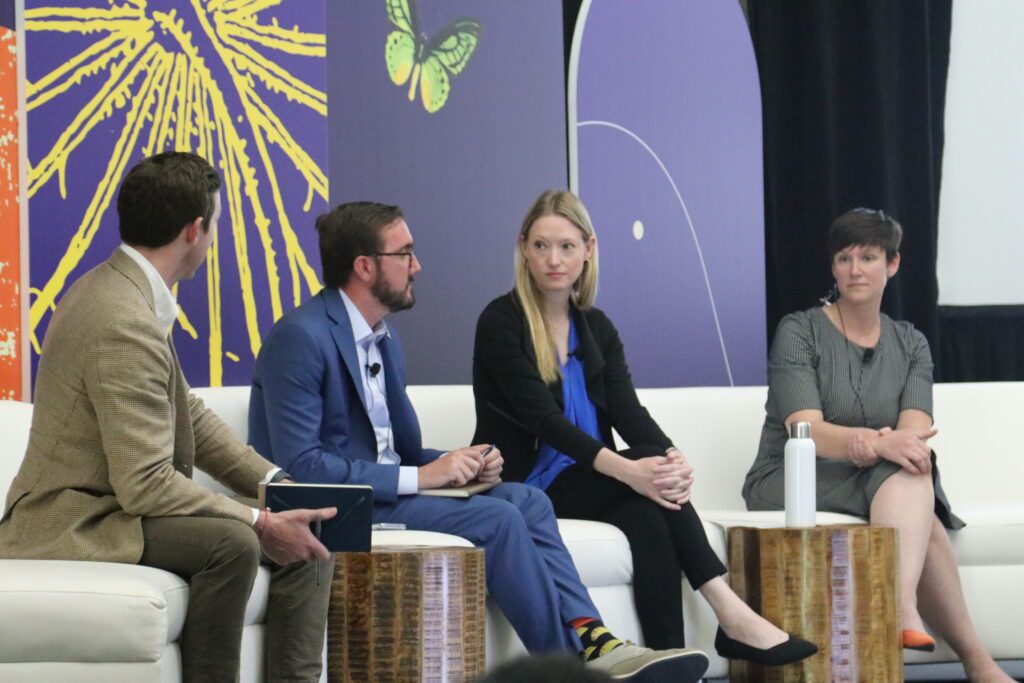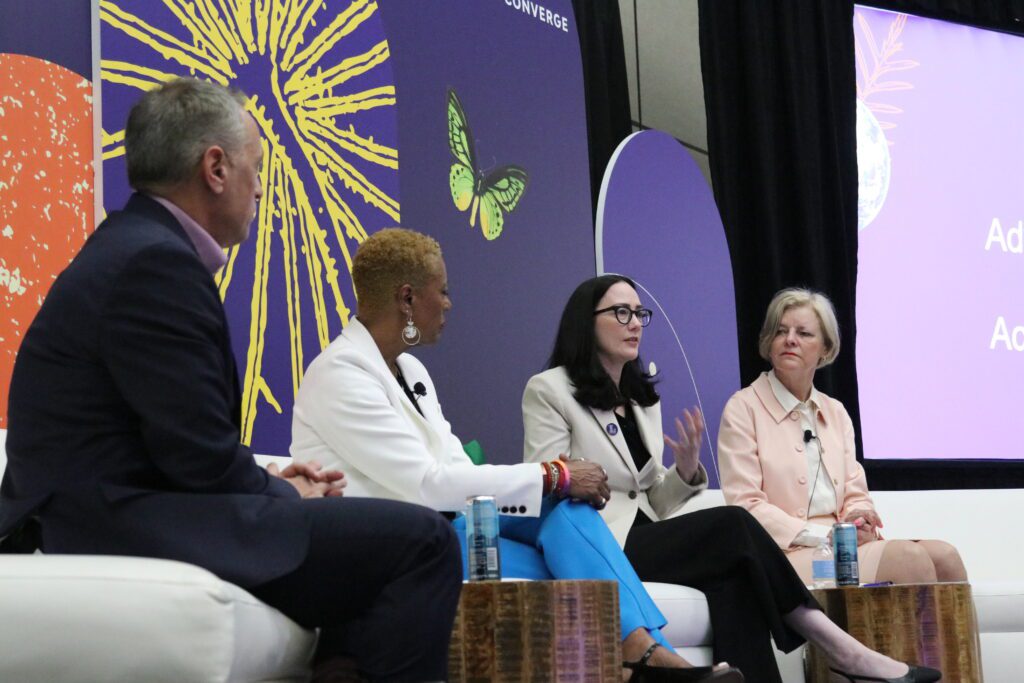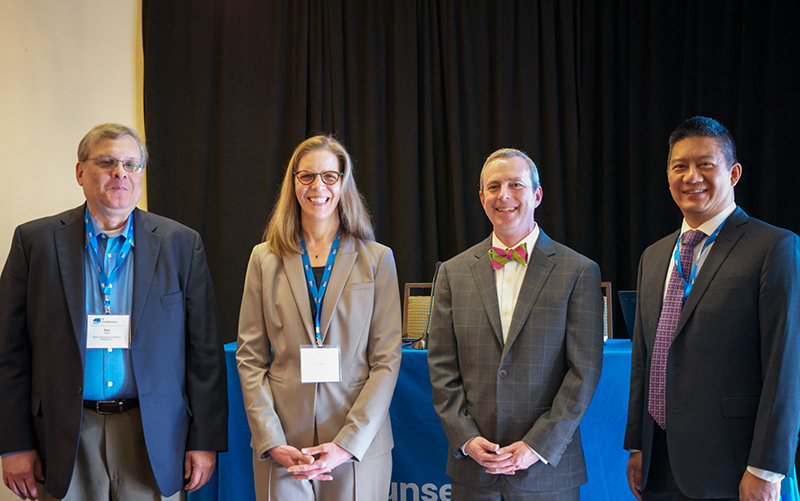In 2024, the BIO International Convention is shining a bright light on patients—in line with one of the Biotechnology Innovation Organization’s strategic priorities to put an “extraordinary focus on patients, caregivers, and their families.”
Throughout the week, sessions bring together patients, advocates, and caregivers to discuss key policy issues and how we can advance innovation for patients. Here are a few things we’re learning—and we’ll keep this updated as the week evolves.
AFPs are a problem.
As Good Day BIO has reported, Alternative Funding Programs (AFPs) remove specialty drugs from an insurer’s formulary of covered drugs, then make patients apply to drug makers’ charitable patient assistant programs (PAPs). AFPs get charity drugs for free and take a fee from insurance companies, who save money.
Patients agree.
AFPs “present a serious danger to patient access for cancer patients as well as other serious chronic conditions. Alternative funding programs manipulate formularies and back patients into a corner of having to work with vendors to apply for patient assistance to try to get their medication,” said Kim Czubaruk, JD, Associate Vice President of Policy for Cancer Care, in an interview. “This takes valuable time away—whether a patient is ultimately approved and can get their medication from a patient assistance program or not.”
Interview with Kim Czubaruk, JD, Associate Vice President of Policy for Cancer Care
Czubaruk spoke during a June 3 panel, Alternative Funding Programs: Protecting Patients in an Ever-Changing Healthcare Landscape. She was joined by speakers from Aimed Alliance, Hemophilia Alliance, Cystic Fibrosis Foundation, and Bristol Myers Squibb, a BIO member company.
“The problem with alternative funding programs (AFPs) is that it’s not mentioned in the insurance documents,” so AFPs can become an obstacle to drug access “even for our most savvy patients,” said Theresa Alban, JD, MPH, Senior Manager, Federal Policy for the Cystic Fibrosis Foundation, speaking during the panel.
“Time is of the essence for cancer patients to get their treatment. Delays in access are very real because of Alternative Funding Programs,” continued Czubaruk.
‘It was about time we had a cap in Medicare Part D’

Another June 3 panel, A New Era for Access and Affordability: Considerations for Patients and Manufacturers in a Post-IRA World, brought together experts from Avalere, Arthritis Foundation, Genentech, and the National Health Council to talk about the Inflation Reduction Act’s pluses and minuses for patients.
“It was about time we had a cap in Medicare Part D—the only public health care system in the United States that at the time did not have a cap,” said Eric Gascho, SVP of Policy and Government at the National Health Council.
Patient advocates have an important role in biotech innovation
A June 3 panel, From Patients to Partners: Patient Advocacy and Biotech Collaborate to Accelerate Innovation, highlighted the crucial role of patient advocates in biotech innovation – a fitting end to Day 1. Speakers emphasized the importance of integrating patient perspectives into research and clinical trial design, marking a shift towards patient-centric approaches.

“Patient advocacy has really transformed over the last ten years,” said moderator Anthony Mancini, EVP and COO of Genmab, in an interview with Good Day BIO Live. “Patient advocacy is an integral part of shaping the research that we do, so it’s really an end-to-end process now,” including the patient voice “from beginning to end.” This leads to better insights into clinical research priorities and unmet need, leading to results that mean more to patients.
Personal experiences from advocates and leaders like Portia Badham, a patient advocate and cancer survivor, and Meghan Gutierrez, CEO of the Lymphoma Research Foundation, showcased how organizations and individuals are prioritizing patient needs in biomedical research, treatment strategies, and resource provision.
Regulatory insights from Sabine Haubenreisser of the European Medicines Agency (EMA) demonstrated the global collaboration incorporating patient voices at every stage of drug development. Effective Patient Advisory Councils and digital tools, such as mobile apps for treatment management, were discussed as innovations driven by patient advocacy. These initiatives ensure that patient feedback is genuinely integrated, improving adherence, and communication with healthcare providers.
The panel underscored the importance of diversity and inclusion in patient advocacy, calling for continued collaboration between patients, advocacy groups, biotech companies, and regulatory agencies. This cooperative approach promises a future where patient experiences are central to medical advancements, leading to more effective and patient-centered healthcare solutions.
“Patient advocates can play a really critical role in helping us design clinical studies that really mean more to patients,” continued Mancini. “They can help us really with deeper insights into the patient perspective on the unmet need. They can help us with the endpoints to make sure those endpoints really matter to patients. And they can also help us with patient participation and retention in clinical studies.”
This can lead to clinical research that ends up with “results that mean more in the real world to patients.”
Interview with Anthony Mancini, EVP and COO of Genmab



